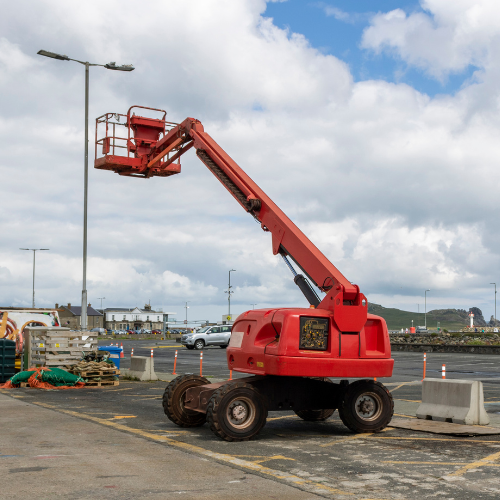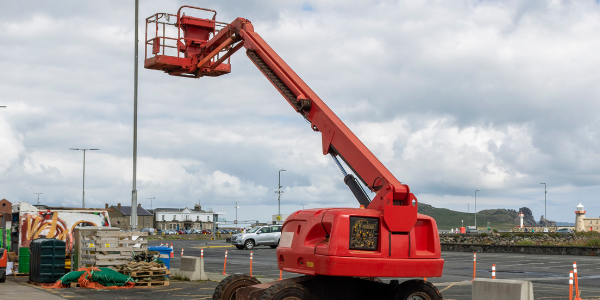Don't Reach for the Sky Blindly: Why EWP Training in Melbourne is Essential
Melbourne’s skyline is a tapestry of construction and maintenance, a constant dance of workers reaching for the stars. But before anyone straps on a harness and ascends an elevating work platform (EWP), proper training is paramount. It’s not just a box to tick on a safety checklist; it’s the difference between a productive workday and a tragic accident. Melbourne’s building boom is a testament to the city’s vibrancy, but it also presents a growing challenge: ensuring the safety of those working at heights. From construction crews to window cleaners and maintenance personnel, countless individuals rely on EWPs to access hard-to-reach areas.

The Dangers of Untrained EWP Operation
Without proper training, operating an EWP training Melbourne is like navigating a minefield blindfolded. The risks are numerous and often hidden:
Tipping and overturning: Unstable ground, overloading, or improper maneuvering can cause these platforms to topple, with potentially fatal consequences.
Electrocution: Contact with power lines or poorly maintained electrical components can lead to severe injuries or death.
Falls: Improper harness use, incorrect platform positioning, or misjudging heights can result in devastating falls.
Crushing injuries: Boom collapse, malfunctioning controls, or accidental collisions can cause severe crushing injuries to both operators and those below.
These are just a few examples. The potential dangers of untrained EWP operation are far-reaching and underscore the importance of proper training.
EWP Training: Equipping Melbourne's Workforce for Safe Heights
Investing in comprehensive EWP training isn’t just a legal obligation; it’s a moral imperative. It equips workers with the knowledge and skills to navigate the complexities of EWP operation, ensuring their safety and the safety of those around them.
What Makes Effective EWP Training in Melbourne?
Quality EWP training in Melbourne should be:
Comprehensive: Covering all aspects of EWP operation, including pre-operational checks, hazard identification, safe work practices, emergency procedures, and rescue techniques.
Practical: Offering hands-on experience in various EWP types and scenarios, simulating real-world challenges to build confidence and competence.
Up-to-date: Reflecting the latest regulations, industry best practices, and technological advancements in EWP design and operation.
Tailored: Addressing the specific needs and risks of different industries and workplaces.
Competency-based: Ensuring that trainees demonstrate proficiency before receiving certification, not just completing coursework.
The Benefits of Investing in EWP Training:
The benefits of investing in quality EWP training extend far beyond mere compliance:
Reduced accidents and injuries: Proper training significantly minimizes the risk of accidents and injuries, safeguarding the health and well-being of workers.
Improved productivity: Confident and competent operators work faster and more efficiently, leading to increased productivity and project completion.
Enhanced safety culture: A commitment to EWP training fosters a culture of safety within organizations, creating a more positive and responsible work environment.
Reduced costs: Accidents and injuries not only cause human suffering but also incur significant financial costs through medical expenses, lost productivity, and legal fees. Investing in training is proactive risk management, leading to long-term cost savings.
Stronger reputation: Organizations that prioritize EWP training demonstrate their commitment to safety and compliance, enhancing their reputation and attracting top talent.
Finding the Right EWP Training Provider in Melbourne
With numerous training providers in Melbourne, choosing the right one is crucial. Look for accredited trainers with extensive experience in EWP safety and operation. Ask about their course content, training methods, instructor qualifications, and class sizes. Ensure the training aligns with your specific industry requirements and the types of EWPs used in your workplace.
Don’t gamble with safety. Invest in EWP training in Melbourne and equip your workforce with the knowledge and skills to reach for the sky, safely and confidently.
Also check out our blog on Medium.
Frequently Asked Question
Yes, EWP training is mandatory in Melbourne under the Work Health and Safety Act 2012. Employers must ensure all workers operating EWPs have completed the appropriate training and hold a valid High Risk Work Licence (HRWL) for the specific EWP types they use.
There are different EWP training courses in Melbourne catering to various types of machines and platforms. Popular options include: Boom-type EWPs (cherry pickers): The most common type, used in construction, maintenance, and events. Scissor lifts: Ideal for indoor work and tasks requiring precise positioning. Truck-mounted platforms: Highly versatile for reaching high spaces and navigating uneven terrain. Mobile elevating work platforms (MEWPs): A broad category encompassing various types of portable and self-propelled platforms.
Increased focus on practical training: Hands-on simulations and real-world scenarios are becoming more prevalent to enhance competency and build confidence. Adoption of virtual reality (VR) technology: VR simulations provide immersive training environments for safe and realistic practice in diverse settings. Micro-credentials and specialized training: Short, targeted courses focused on specific EWP types or tasks are gaining popularity for upskilling and reskilling workers. Focus on mental health and wellbeing: Recognizing the psychological stress associated with working at heights, some training programs incorporate mental health awareness and coping strategies.
Costs vary depending on the training provider, course type, and certification level. Typically, expect to pay between $200 and $500 for basic EWP training and $1,000 or more for advanced courses and HRWL assessments.
The demand for skilled EWP operators is high in Melbourne, with employment opportunities available across various industries like construction, maintenance, utilities, arboriculture, and event management. Qualified operators can command competitive salaries and enjoy career progression opportunities.
While there are no specific physical requirements mandated by law, good hand-eye coordination, physical stamina, and normal range of motion are essential for operating a forklift safely and effectively. If you have any concerns about your physical ability, consult your doctor or discuss them with Positive Training Academy during the enrollment process.
Absolutely! Positive Training Academy offers Forklift Licence training in various languages, including Hindi, Mandarin, and Vietnamese. We also provide resources and support to help non-native English speakers navigate the training process successfully.
With experience and additional certifications, forklift operators can progress to supervisory roles, warehouse managers, or even logistics coordinators. Some individuals choose to specialize in operating specific types of forklifts, like reach trucks or telehandlers, further enhancing their career prospects.
Positive Training Academy goes beyond just providing training. We offer career guidance and job placement assistance to help you connect with potential employers in your desired field. We also partner with leading companies in Melbourne's logistics and construction sectors, increasing your chances of landing your dream job.
18 Years Old. The minimum age requirements to obtain a forklift license may vary depending on the country or region where you are seeking certification. In many places, including Australia and the United States, the minimum age to apply for a forklift license is generally 18 years old.







